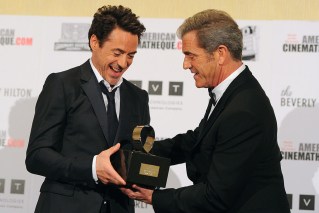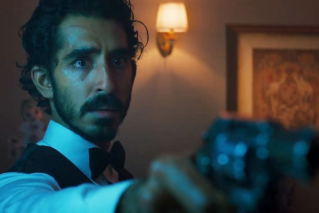Stieg Larsson: The man behind the myth is revealed in new film


The Girl with the Dragon Tattoo author and journalist Stieg Larsson in Paris in an undated photo before his 2004 death. Photo: Getty
Almost 15 years after his sudden death at 50 from a heart attack, author Stieg Larsson is as popular and relevant as ever, thanks to his posthumously published Millennium trilogy featuring dark avenger Lisbeth Salander.
Since their 2005 first publication, the books have shifted north of 90 million copies.
Kicked off by The Girl with the Dragon Tattoo, the books have a real-life drama behind them which is just as riveting: A fierce legal stoush between their Swedish publisher and Larsson’s life partner Eva Gabrielsson.
Swedish law cut architect and author Ms Gabrielsson, now 65, out of a hefty inheritance because she and Larsson were unmarried.

Eva Gabrielsson in Stockholm in March 2015. Photo: Getty
Instead, profits went to the author’s father Erland Larsson and brother Joakim Larsson, who authorised the two further Millennium novels penned by David Lagercrantz.
A new documentary screening as part of the sixth Volvo Scandinavian Film Festival goes back further, revealing the man behind the myth.
Screening alongside a retrospective of the first three movies, Stieg Larsson: The Man Who Played With Fire reveals he was inspired by his fiercely anti-Nazi grandfather to relentlessly pursue far-right terrorists as an investigative journalist, not entirely unlike his central character Mikael Blomkvist.
Originally hailing from Wagga Wagga in New South Wales, Emma Vestrheim is a lecturer in contemporary Scandinavian film culture at the University of Oslo in Norway and is editor-in-chief of Nordic film and television site Cinema Scandinavia.
She says Larsson is revered as the father of Nordic noir in the Scandinavian nations.
“The original books are timeless and Nordic film and television has evolved because of him,” Ms Vestrheim tells The New Daily.
Part the enduring appeal of Larsson’s work is the shock of a Sweden we barely recognise, she suggests.
“When people think of Sweden, they think of ABBA. It’s this utopian, super-progressive, idealistic, democratic society and Larsson really breaks that down.”

Journalist Larsson on the job in an undated photo. Photo: Per Jarl
Larsson spent decades exposing far-right figures in Expo, the magazine he helped found at great personal risk. It’s why he never married Ms Gabrielsson, because Swedish law would have required them to publish their address.
Ms Vestrheim isn’t a fan of the Lagercrantz books, nor did she enjoy the movie adaptation of his The Girl in the Spider’s Web starring The Crown’s Claire Foy as Salander.
David Fincher’s earlier remake of the first film, with Rooney Mara, was passable, she says.
“You can’t replicate the Swedish melancholy in a British or American production,” she insists.
Ned Kelly Award-winning Australian crime writer Jock Serong is fascinated by Larsson’s journalistic work.

Claire Foy at the Berlin premiere of The Girl in the Spider’s Web in 2018. Photo: Getty
“He’s the perfect nexus of crime fiction and societal truth,” the author of Quota and The Rules of Backyard Cricket tells The New Daily.
“Behind the scenes he was doing hard, cold journalism on the murder of Swedish Prime Minister Olof Palme, a mystery that now rivals JFK for longevity and misinformation.
“Larsson was himself a suspect, after his death, but that’s more likely to be his political enemies trying to smear him.”
And Larsson had many enemies. “He hated the far-right, and they hated him,” Serong says.
“He had boxes of notes on his investigation of Palme’s death, linking the murder to South Africa, as Palme had been outspoken against apartheid.”
Serong agrees Larsson’s Sweden is a far cry from what we think we know.
“He contradicts our stereotypes. Scandinavian society is progressive, open, democratic, yet they create these dark novels and films. Is it some kind of healthy venting?
“If we wrote and read evisceration in the snow, would we be a kinder society for having purged the dark thoughts?”
Stieg Larsson: The Man Who Played With Fire is screening nationally at the sixth Volvo Scandinavian Film Festival until August 7 (dates vary in different cities)








